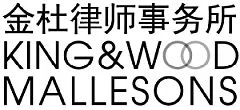- within Strategy, International Law and Employment and HR topic(s)
- with readers working within the Media & Information and Retail & Leisure industries
On June 30, the Ministry of Industry and Information Technology ("MIIT") issued the Opinion on Regulating Conducts of Basic Telecoms Enterprises on College Campuses ("MIIT Opinion"). The MIIT Opinion governs specified conduct by basic telecom enterprises1 -in relation to unfair competition issues within college or university campuses.
Specifically, the MIIT Opinion prohibits basic telecoms enterprises from:
- entering into exclusive agreements (both oral and written) with school authorities such that other competitors will not be able to enter school campuses;
- disparaging competitors or carrying on any promotion that compares the networks or equipment of competitors;
- including SIM or UIM cards in the enrolment notices mailed to freshmen;
- purchasing cell phones (or batteries), SIM or UIM cards from clients of competitors;
- mandating the use of designated service plans or equipment (such as cell phones).
Basic telecoms enterprises are also required to respect the users' right to know and the right of selection. They are not allowed to restrict customers from choosing competitors' services.
Unfair competition conducts such as those listed above are common in China's campus telecoms market. The MIIT Opinion can be seen as an application of anti-unfair competition provisions in the Regulation on Telecommunications (the "Regulation") in the campus telecoms market. For example, Article 41 of the Regulation prohibits telecoms operators from harming customers' rights by limiting customers to use designated services or buy designated equipment. Article 42 of the Regulation prohibits unfair competition conducts such as restricting customers from using competitors' services. According to the Regulation, a violation of Article 41 may be subject to a fine of RMB10,000 to 100,000; a violation of Article 42 may be subject to a fine of RMB100,000 to 1 million. The MIIT is the competent authority in charge of the telecommunications industry.
Comments
The State Administration for Industry and Commerce ("SAIC"), along with its local counterparts, is the agency in charge of anti-unfair competition issues in China. Yet, pursuant to Article 3 of the Anti-unfair Competition Law ("AUCL"), agencies other than the SAIC may also undertake a supervisory role when authorized by law or administrative regulations. The Regulation on Telecommunications (an administrative regulation) authorizes the MIIT, as the industry supervisory authority, to regulate unfair competition acts of telecoms enterprises. Therefore, MIIT is well placed to regulate unfair competition issues within this industry.
On the other hand, whether MIIT has the authority to enforce the Anti-monopoly Law ("AML") remains unclear and controversial. Earlier this year, MIIT issued the draft Interim Rules for Supervision and Management of Internet Information Service Market, which touches upon not only competition issues but also antitrust issues in relation to the internet information service industry (see our article entitled MIIT Releases Draft Rules Which Govern Antitrust Issues http://www.chinalawinsight.com/2011/02/articles/corporate/antitrust-competition/miit-releases-draft-rules-which-govern-antitrust-issues/). Doubts have arisen as to whether MIIT has the authority under the AML to enforce antitrust issues and how MIIT is to work with the other antitrust enforcement agencies, such as SAIC, to perform such tasks. We note that this draft rule has not yet been enacted.
1. Basic telecoms operators in China include China Telecommunications, China Mobile and China Unicom.
The content of this article is intended to provide a general guide to the subject matter. Specialist advice should be sought about your specific circumstances.



